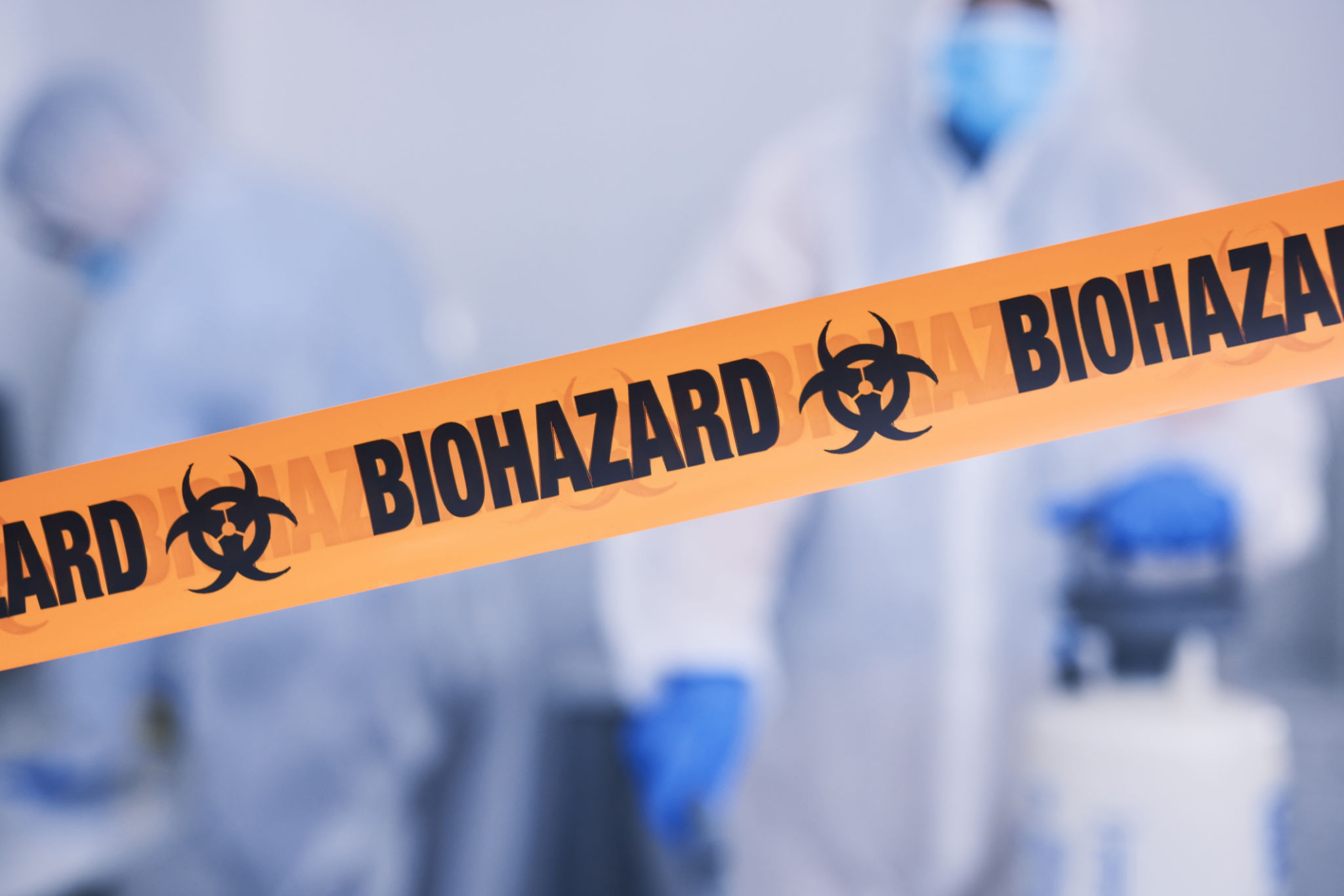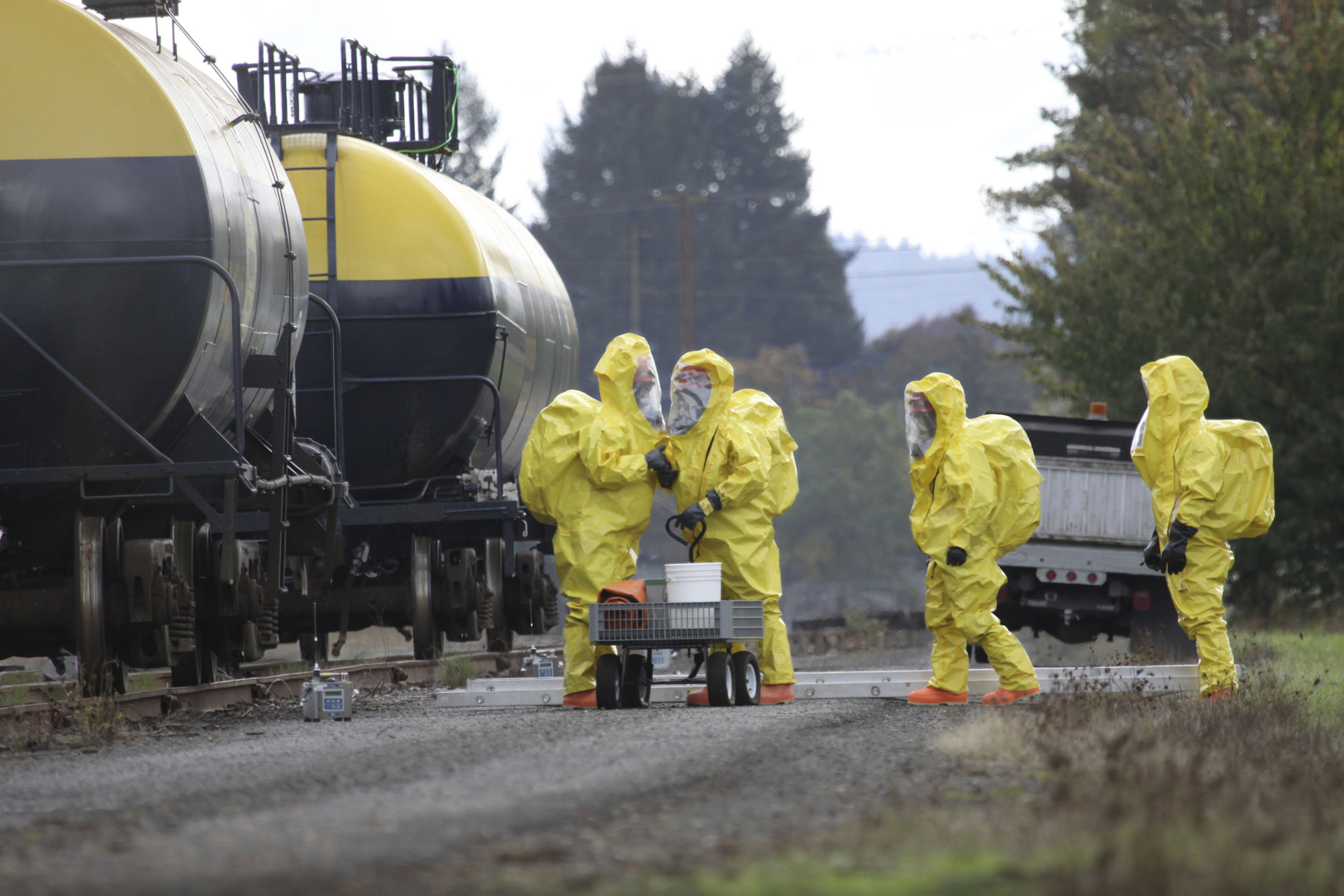The Role of Biohazard Decontamination Specialists in Post-Incident Recovery
Understanding the Importance of Biohazard Decontamination Specialists
In the aftermath of incidents involving hazardous materials, the role of biohazard decontamination specialists becomes crucial. These professionals are trained to manage and mitigate risks associated with biohazardous materials, ensuring that affected areas are safely restored. Their expertise is not just about cleaning but involves a comprehensive approach to safety and health.
Biohazard decontamination is essential in scenarios such as crime scenes, industrial accidents, or natural disasters where biological contaminants may pose a threat. Specialists in this field are adept at handling pathogens, bloodborne viruses, and other dangerous substances, providing an invaluable service in post-incident recovery.

Key Responsibilities of Decontamination Specialists
The responsibilities of biohazard decontamination specialists extend beyond mere cleaning. Their work involves:
- Assessment: Identifying the extent of contamination and the specific hazards present.
- Containment: Implementing measures to prevent the spread of biohazards to unaffected areas.
- Decontamination: Using specialized equipment and chemicals to neutralize hazardous materials.
- Disposal: Ensuring safe and compliant disposal of biohazardous waste.
Each step requires meticulous attention to detail and adherence to strict safety protocols to protect both the specialists and the public.
Training and Expertise Required
Biohazard decontamination specialists undergo rigorous training to handle a wide range of hazardous situations. They must be knowledgeable about various decontamination techniques and the latest safety standards. Certification in handling hazardous materials is often a requirement, alongside continuous education to stay updated with industry advancements.

The Impact on Public Health and Safety
The work of decontamination specialists significantly impacts public health and safety. By effectively managing biohazardous materials, they help prevent potential outbreaks of disease and contamination. This is particularly important in densely populated areas where the spread of pathogens can have dire consequences.
Furthermore, their efforts ensure that affected environments can return to normalcy more swiftly, minimizing disruptions to communities and businesses. This not only aids in physical recovery but also supports emotional and psychological healing for those affected.
Collaboration with Other Agencies
Biohazard decontamination specialists often collaborate with other agencies such as local law enforcement, health departments, and environmental protection bodies. This collaboration ensures a coordinated response to incidents involving hazardous materials, maximizing efficiency and safety.

These partnerships are vital, as they bring together diverse expertise and resources, facilitating a more comprehensive and effective response to biohazard incidents.
The Future of Biohazard Decontamination
As technology advances, so do the methods and tools available for biohazard decontamination. Emerging technologies such as robotics and automation are being integrated into decontamination processes, increasing efficiency and reducing risks to human workers.
The field continues to evolve, with ongoing research focused on developing safer, more effective methods for dealing with biohazards. As our understanding of pathogens and contamination grows, so too does our ability to protect communities from their potentially devastating effects.
In conclusion, biohazard decontamination specialists play a vital role in post-incident recovery. Their work not only restores safety to affected areas but also provides peace of mind to communities, knowing that their environment is protected by capable hands.
